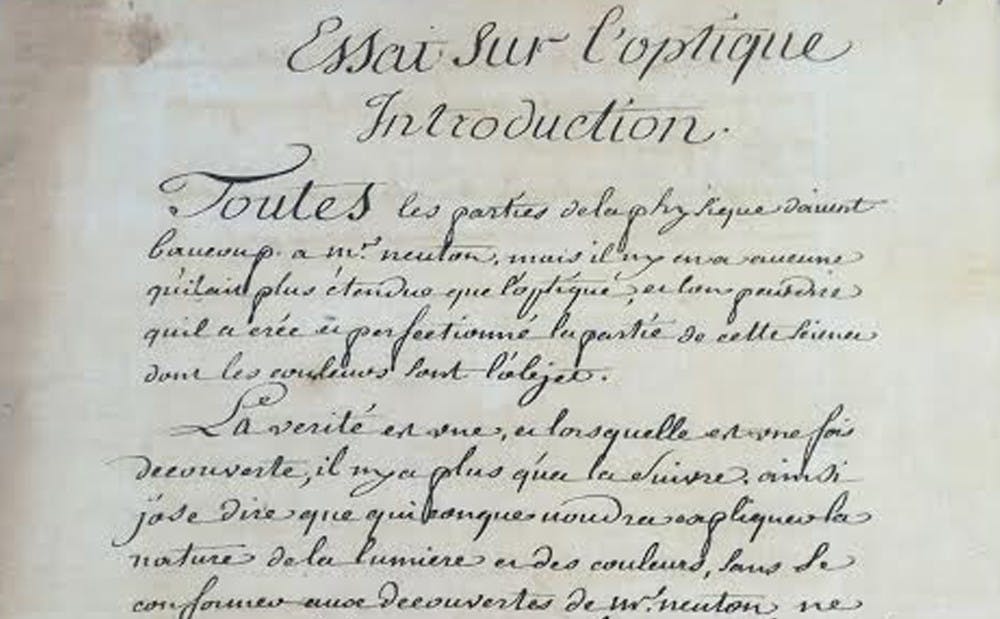For students, it’s often easy to take what professors say as absolute truth—but even they can’t know everything, especially when it comes to female-driven philosophy.
Project Vox at Duke is working to fill a void in philosophy’s canonical narrative by providing learning materials about female figures in philosophy and creating a website where the public can learn about the women and their philosophies. In addition, the project conducts active research on the women, and works on translating and publishing their works. The website currently focuses on Lady Damaris Masham, Margaret Cavendish, Anne Conway and Émilie du Châtelet.
“If you want to be correct historically, these women were important in their own time and they were in dialogue with philosophers we today think of as canonical and really important,” said project manager Adela Deanova, a Ph.D candidate in philosophy.
While extremely popular during their own lifetimes, these figures fell out of the historical narrative as time went on. During the nation building of the 18th and 19th centuries, many textbook writers omitted female figures in attempt to portray national narratives.
In addition, in the 19th century period after the French Revolution, women faced more backlash for societal prominence. This discouraged the publication of women’s ideas and philosophies, resulting in their absence from the historical record.
“Some of the voices got lost because they said what they had to say in correspondence,” Deanova said.
Although many female philosophers did not publish a book, they shared their ideas through letters with other intellectuals. They wrote for the “Republic of Letters,” an academic community of correspondence of the 16th to 18th centuries in which philosophes proliferated their ideas and learned about others." Much of their correspondence has not been published or translated, though, limiting the available knowledge about these figures and their philosophies.
Project Vox thus hopes to expand what is known about these women through translating and publishing their works. The project is currently working on publishing a manuscript on optics by du Châtelet—the first time it will be available to the public.
“A student can discover something new about these figures just by doing their own research. That’s why a lot of students have gotten involved,” said Project Vox's Co-Leader Andrew Janiak, chair of the philosophy department and Creed C. Black Associate Professor of Philosophy.
Although the more popularly taught male philosophers have been extensively studied and written about, Project Vox conducts original research and continually discovers new information. Even further, it makes this information publicly available through an informational, newly-updated website.
“First phase was to get a professional, academically-researched website up, and the second phase focused more on teaching materials and visual media to enhance the website,” Deanova said.
In conjunction with the research and website creation, Project Vox also compiles example syllabi to provide professors with examples of how female philosophers can be incorporated into courses.
By researching and spreading information about the philosophers, Project Vox looks to educate professors more about the figures, so they can in turn share with students a more complete view of early modern philosophy.
“One of our barriers is a lack of knowledge,” Janiak said. “People have heard of these figures but don’t know enough to teach them.”
Although the researchers initially thought only a small audience would be interested in their work—teachers of early modern philosophy—the website has attracted viewers from all over the world, even in countries where English is not the primary language.
“There was a much larger audience than we ever expected—we’ve had 19,000 unique visitors from 139 countries,” Janiak said. “We’ve already had faculty from different parts of the world write to us asking to help with expansion."
With such a large interest in the subject matter, Project Vox aims to eventually include even more philosophers on the website, to translate and publish even more writings and to provide more teaching materials.
Project Vox will hold its first large event, a convention entitled “New Narratives in Philosophy: Rediscovering neglected works by early modern women,” April 14 to 17 in Smith Warehouse. Hosted by the Franklin Humanities Institute, the conference has invited academics from around the country, and a few from around the world, to speak about the female philosophers Cavendish, Conway and du Châtelet. The event is open to the public, with registration online.
Get The Chronicle straight to your inbox
Sign up for our weekly newsletter. Cancel at any time.

